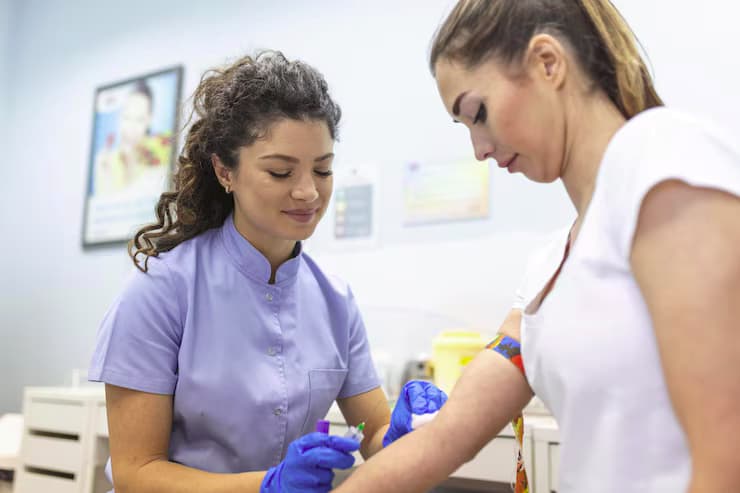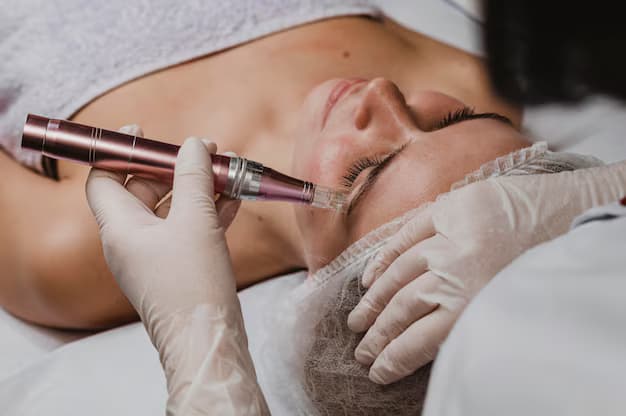 Conversion-Focused Landing Pages – More Leads, Less Bounce!
Conversion-Focused Landing Pages – More Leads, Less Bounce!
What You’ll Learn in a Certified Phlebotomy Course
Written by butlerfrank » Updated on: June 24th, 2025

Phlebotomy, the practice of drawing blood for medical purposes, has gained significant traction as a career choice in the healthcare sector. As the need for qualified healthcare professionals continues to grow, so does the demand for well-trained phlebotomists. A certified phlebotomy course equips individuals with the skills and knowledge necessary to excel in this vital role. This article delves into the comprehensive curriculum of a certified phlebotomy course, highlighting key components that aspiring phlebotomists will encounter during their training.
Understanding Phlebotomy and Its Importance
Phlebotomy is not merely about drawing blood; it encompasses a wide array of responsibilities that ensure patient safety and accurate laboratory results. The role of a phlebotomist is pivotal in the healthcare system, as they are often the first point of contact for patients undergoing diagnostic tests. A phlebotomy course lays the groundwork for understanding not only the technical skills required but also the ethical considerations and interpersonal skills that enhance patient care.
Throughout the course, learners will explore the anatomy and physiology relevant to blood collection. They will gain insights into the circulatory system, the types of blood cells, and their functions. This foundational knowledge is crucial for understanding how to properly collect blood samples and why specific procedures are essential for maintaining the integrity of the samples.
Key Skills Acquired in a Certified Phlebotomy Course
Mastering Blood Collection Techniques
One of the cornerstones of a certified phlebotomy course is mastering various blood collection techniques. Students will learn about different methods such as venipuncture, capillary puncture, and arterial puncture. Each technique has its specific applications and requires a unique set of skills.
Instructors will emphasize the importance of selecting the appropriate collection method based on patient age, vein accessibility, and the type of tests ordered. For instance, while venipuncture is commonly used for adult patients, capillary punctures may be more suitable for infants or patients with difficult venous access. Through hands-on training, students will practice these techniques, ensuring they are well-prepared for real-world scenarios.
Understanding Safety Protocols and Infection Control
In the medical field, safety is paramount. A certified phlebotomy course places a strong emphasis on safety protocols and infection control measures. Students will learn about the standard precautions that must be taken to protect both the patient and the healthcare provider during blood collection procedures. This includes the appropriate use of personal protective equipment (PPE), proper disposal of sharps, and the importance of hand hygiene.
Moreover, the course will cover the protocols for handling biohazardous materials and the significance of adhering to regulations set forth by organizations such as the Occupational Safety and Health Administration (OSHA). By understanding these protocols, phlebotomists can minimize the risk of infections and ensure a safe environment for their patients.
Patient Interaction and Communication Skills
Phlebotomists often find themselves in situations where they need to interact with patients who may be anxious or fearful about blood draws. A certified phlebotomy course emphasizes the development of strong communication skills and the ability to provide compassionate care.
Students will be trained to effectively explain procedures to patients, addressing any concerns they may have. This includes discussing the purpose of the blood draw, what to expect during the process, and how the samples will be used. By fostering a sense of trust and understanding, phlebotomists can help alleviate patient anxiety, leading to a smoother experience for all parties involved.
Laboratory Procedures and Sample Handling
Once blood is collected, it must be handled and processed correctly to ensure accurate test results. A comprehensive phlebotomy course will introduce students to laboratory procedures and the importance of proper sample labeling, storage, and transportation.
Students will learn about the various types of tests that are performed on blood samples and how to prepare specimens for analysis. This includes understanding the significance of using the correct tubes, preventing contamination, and following strict guidelines for specimen handling. By mastering these procedures, phlebotomists contribute to the overall quality of patient care through accurate diagnostic testing.
Certification and Career Opportunities
Upon successful completion of a certified phlebotomy course, students typically have the opportunity to obtain national certification. This certification serves as a testament to their knowledge and skills, enhancing their employability in a competitive job market.
Phlebotomists can find employment in various healthcare settings, including hospitals, clinics, laboratories, and blood donation centers. The demand for skilled phlebotomists is high, with many organizations actively seeking qualified professionals to join their teams. Additionally, the potential for career advancement exists, as phlebotomists can pursue further education and training in specialized areas of healthcare.
The Importance of Choosing the Right Training Program
Not all phlebotomy courses are created equal. When selecting a training program, it is essential to choose one that is accredited and offers a comprehensive curriculum. A quality program will provide students with a combination of theoretical knowledge and hands-on experience, ensuring they are well-prepared for the challenges of the profession.
Furthermore, potential students should consider the reputation of the institution, the qualifications of the instructors, and the availability of job placement assistance. A well-structured program can significantly impact a student's success in securing a position in the field after graduation.
Conclusion
In conclusion, a certified phlebotomy course serves as a gateway to a rewarding career in healthcare. Through a combination of technical training, safety protocols, and patient interaction, aspiring phlebotomists gain the essential skills needed to excel in this vital role. With the increasing demand for healthcare professionals, pursuing a career in phlebotomy presents an excellent opportunity for those interested in making a difference in patients' lives.
If you're ready to take the first step toward a fulfilling career in phlebotomy, consider enrolling in a program at Este Training Academy. Our comprehensive courses are designed to provide you with the knowledge and skills necessary to succeed in this in-demand field. Start your journey today and become a certified phlebotomist!
Note: IndiBlogHub features both user-submitted and editorial content. We do not verify third-party contributions. Read our Disclaimer and Privacy Policyfor details.
Copyright © 2019-2025 IndiBlogHub.com. All rights reserved. Hosted on DigitalOcean for fast, reliable performance.













